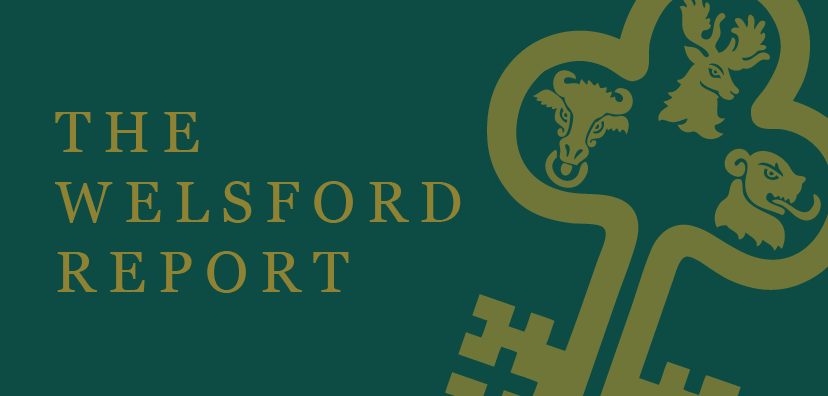The Morning After the Night Before – Election analysis and what this may mean for our Investments
The referendum result on 23rd June 2016 was a shock to many who had dismissed the notion that we would leave the EU, at best as very unlikely and at worst a UKIP induced fantasy. This morning many woke to a similar situation with a hung parliament resulting from a stronger than expected performance by Labour, although having stayed up all night to watch events unfold I am not one of those!
Most of us knew that the likelihood of a hung parliament had increased over the last few weeks, as ‘strong and stable’ turned to ‘weak and wobbly’ and the gap between Conservatives and Labour shrunk to almost nothing on election day. What is less clear is how the events of last night will affect markets and ultimately the performance of our clients’ portfolios.
What we have learned from the events of the last 10 years; yes it really is 10 years since the banking crisis began to bubble over, culminating in the collapse of Lehman Brothers and the loss of trillions of dollars worth of global share value and recessions in most developed economies; what we have learned from what followed, is not to panic and not to underestimate the strength of well designed, sensible and sustainable investment portfolios.
Today is the beginning of a culmination of events that have been completely misunderstood by most mainstream UK politicians, Labour as well as Conservative. Austerity has been confused with responsible financial governance. There are anti-establishment similarities with the election of Donald Trump. For Labour, the result was driven by a motivated young vote; very much anti-establishment and anti-austerity, favouring increased public expenditure and public ownership as set out in the Labour manifesto. Had Theresa May and her colleagues understood the empowerment lessons of the 23rd June 2016 and the mood of the general public in opposing further austerity measures, they would probably have never have called this election. But the trouble with politicians is that they are supremely arrogant, extremely deaf and easily flattered by a supportive press and media, even when that media and press fails to reflect the public mood and seeks instead to influence and lead public opinion. The last few weeks have proved, if nothing else, that politicians and journalists have collectively lost their way. The result, without getting ‘hung’ up on the politics, is a ‘hung parliament’.
What Does a Hung Parliament Mean For Our Investments?
What this means for investment portfolios is impossible to predict. The main reason you have heard nothing publicly from me over the last 12 months (beyond my personal review commentaries to individual clients) is that after the Brexit vote I woke up to the realisation that crystal ball gazing had achieved very little and was leading to an overly pessimistic view of markets that despite the apparent facts continued to rise and defy political gravity and economic reality.
Politics and economics are inextricably linked but the relationship has become extremely unclear during last few years as Central Banks have come to dominate the global recovery with seemingly endless interventions.
Without getting bogged down in complex reasons why Central Bankers are so worried about the state of capitalism that are willing to pump trillions of dollars into the global economy, let us accept that, for the time being, the effect of their intervention has been very positive indeed for investments. It is possible that Central Bankers may continue intervening, despite what some politicians and economists might think, or tell us they think, which are possibly not the same thing. This sets the global scene, but rather ignores the Trump factor which adds further uncertainty but seems not to have fazed the markets so far.
Brexit Will Determine the UK’s Future Political Direction
Domestically, here in the UK, last nights events may mean we will have to face another election sooner rather than later, particularly if the DUP (Democratic Unionist Party) are unable to reach any meaningful formal agreement with the Conservatives on Brexit.
There are 10 DUP MPs elected to the UK Parliament and their leadership has been extremely close to the Conservatives, attending their annual party conference last year and announcing that they have a lot in common with the Conservatives. There are many aspects of policy that they could agree on. There is much that could provide embarrassing or divisive for a Conservative administration in need of cohesive support from all their own MPs as well as the DUP. However, despite the DUP support for Brexit during the referendum, where Northern Ireland voted to remain, the DUP have been forced to moderate their stance and now support a soft Brexit that would result in our remaining in the European single market.
This could be very difficult for Brexit negotiations, tying the hands of the Conservative government and potentially putting the DUP in the driving seat, completely the opposite of what the Conservatives intended to gain from an election victory.
What started with the objective of strengthening the Conservative government’s power base has resulted in political destabilisation, just when what is needed is strong united leadership to take us into the negotiations with the EU. This introduces a significant degree of risk and uncertainty but in investment terms it is likely to be short term and localised, the timescale determined by the length of the Brexit negotiation process and the nature of the eventual agreement.
A More International Investment Style
Portfolios are now generally positioned to be more international and spread across a wide range of diverse asset classes, bonds, property and cash as well as shares. Those more income focused strategies whilst still susceptible to short term capital fluctuations, should not suffer too badly, even if shares fall significantly. We need to keep in mind the long term nature of the portfolios and the income they produce. More now than ever, with inflation and interest rates rising, we need to understand why asset backed investment is able to generate excess returns over cash and ultimately remember why we are invested. I began by saying that the last 10 years have taught us not to panic and I will end on that note.
Whilst far from ideal, the situation we find ourselves in this morning will most likely change significantly and unpredictably in the coming days, weeks and months, with solutions coming from areas that we cannot predict and from individuals and groups that measure up to the task better than we might have expected.
The short term uncertainty generated by the hung parliament and the probable short term volatility that will result during the lead up to Brexit needs to be accepted as a normal part of the new political and economic order. In my view, austerity was always destined to create more problems than it solved. Many of you will recall my commentary on the rise of anti-establishment politics in Europe. It is a fact that the UK National Debt is now significantly higher as a percentage of GDP (gross domestic product) than it was when Labour were last in power, despite the austerity measures taken by the 2010 Conservative LibDem Coalition and the majority Conservative government that followed. Last night’s vote reflects a growing sense of distrust in the current administration’s ability to deliver on its promises and regardless of the veracity of such views, the result is political and investment uncertainty.
Nonetheless stock markets, property and bond valuations have risen during the same period and overall the long term relationship between risk and return, remains the main driving force behind investment gains and losses and the resulting income. It all comes back to sensible investment management.
I will close now by saying that predicting the likely effect of political events such as these, whilst interesting and academically stimulating, is actually impossible, a fact proved by the events of the last ten years. We have to stick to the sensible investment principles of diversification, thorough risk and return analysis, sensible cash reserve provision and regular portfolio reviews with a view to the long term outcomes not short term knee jerk reactions to unpredictable situations that will in all probability resolve themselves, one way or another.
Please let me know if you have any questions or comments regarding my analysis.
Chris Welsford
09/06/2017
Important Risk Warning – Please Read
It is important to understand that this report is not intended as specific investment advice. It is only my opinion in broad generic terms, designed to provide a flavour of the markets and possible future outcomes based on the evidence at our disposal.
The value of investments can fall as well as rise and they are not guaranteed. Past performance is not a guide to future returns and you may get back less than you have invested.
If you are at all concerned about your specific situation and the investments you hold and you are not due a review soon, then you should contact us as a matter of urgency and we will review your attitude to risk and your portfolio to ensure it meets your requirements.

